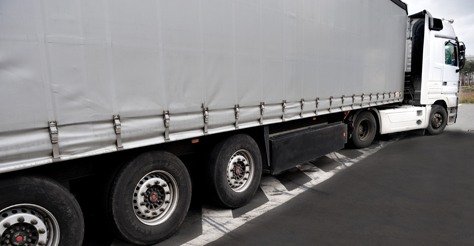-
Lightweight trailers
As is the case in the automotive industry, the reduction of weight also plays a hefty role in the world of transportation. Especially for this specific industry, ArcelorMittal Trailtech, developed a solution for lightweight trailers.

The question arose directly from our market. One of our customers asked if we could develop new solutions for the framework of trailers. The aim was to develop a bodywork which would be 30% lighter than the existing ones. In addition, the production costs had to be cut by 20%. Not an easy task to undertake.
The customer had a clear vision: Yearly saving up to around 700 liters of fuel. In addition, the new bodywork had to be able to hold a divided load up to 21 tonnes as well as a concentrated load going up to 24 tonnes, both whilst the trailer was being pulled. And finally, its performance whilst accelerating, slowing down and taking curves, was also of major importance.
Thinner and lighter steel
Our answer to all these questions: Trailtech. Trailtech utilises two types of low-alloyed steels with high strength and carbon manganese steel. Carbon manganese steel can be found in different types of trailers. In the Trailtech concept however, we only use it in the base of the wheel.
The new low-alloyed types of steel combine high-strength with a good formability and a guaranteed toughness in low temperatures. As both types of steel have a high level of elasticity, we are able to reduce the thickness drastically. Thinner and lighter types of steel are, in addition, not only easier to work with but the processing and transportation costs are also reduced significantly.
Proven advantages of Trailtech
In short, our engineers succeeded in developing a bodywork for trailers that only weighs 1.5 tonnes. This is no less than 39% lighter. As less steel is needed for the bodywork, the cost of material has also been reduced, this by 29%. The achievements of the Trailtech bodywork thus fulfill all requirements.
When a trailer drives an average of around 150.000 kilometers a year, we estimate that by implementing the Trailtech-concept 0.4 to 0.6 liters per 100 kilometers is saved. In addition, the emission of CO2 is reduced from 1 to 1.6kg/100km. These savings match up to the overall goals, set by the transport companies: To save up to 700 liters of fuel whilst lowering their CO2 emissions by 900 kilos on a yearly basis. Looking at Trailtech from a financial point of view, we can see that around 4,500 Euros a year can be saved on the utility costs.
The development of Trailtech shows us once more that economical and ecological goals can certainly go hand in hand.
-
Other applications


